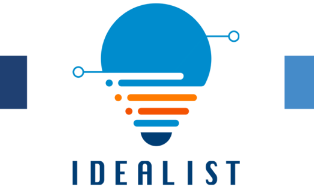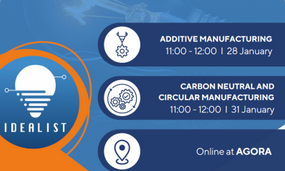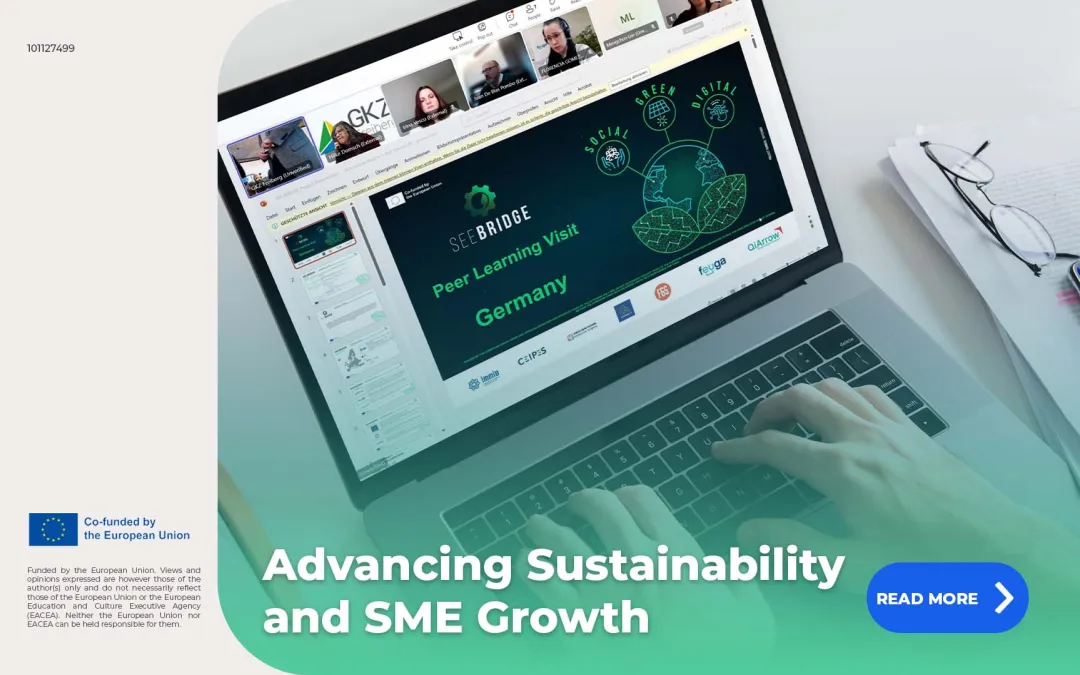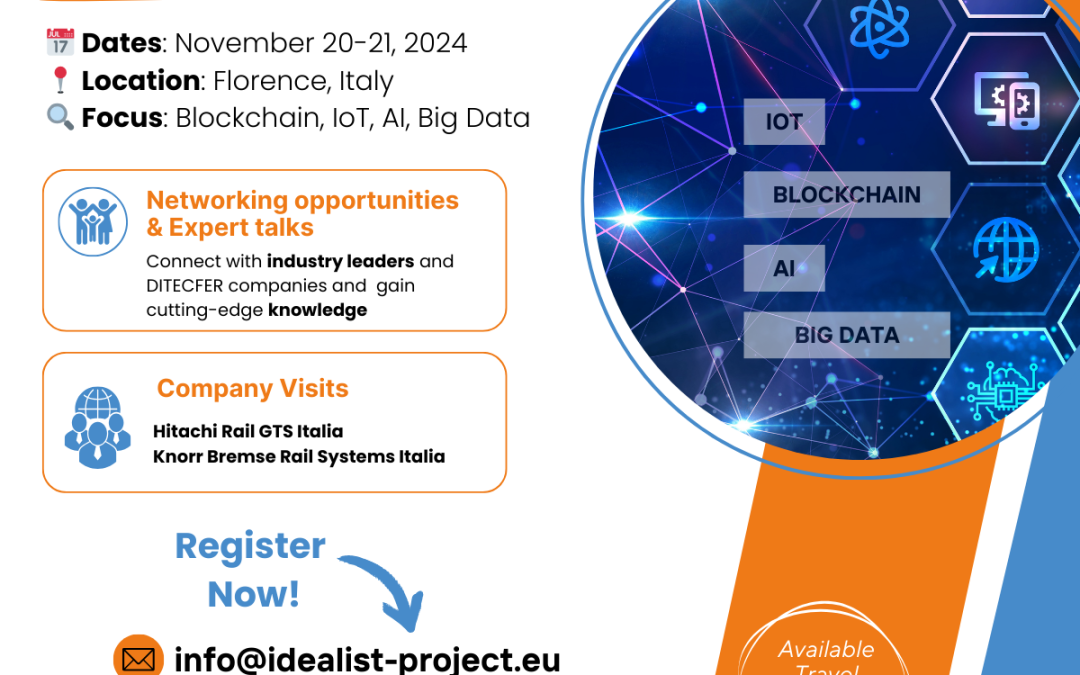
Our EU IDEALIST project offers: The ‘Hack&Match’ events offer a straightforward and efficient way for European SMEs to develop concrete ideas and solutions using advanced technologies. Over two consecutive days, tech-savvy SMEs and technology experts from Europe work together to address needs and capitalise on market opportunities. Further information. Read more

Join the IDEALIST’s Expert-to-expert webinars to learn, connect and exchange!
• The Expert-to-expert webinar on Additive Manufacturing will allow attendees to explore the full scope of the additive manufacturing’s potential and challenges, as well as use cases, with a focus on the green transition:
Date: 28 January, 11:00-12:00.
Register here until 27 January.
• The Expert-to-expert webinar on Carbon Neutral and Circular Manufacturing will allow attendees to gain insight into innovative approaches and technologies aimed at accelerating the transition towards carbon neutral and circular manufacturing
Date: 31 January, 11:00-12:00.
Register here until 30 January.
Join the IDEALIST sphere on AGORA, get the latest information on IDEALIST’s activities and engage with its network: IDEALIST project (AGORA) - AGORA
The expert-to-expert webinars are organised as part of the Project IDEALIST. Funded by the EU, IDEALIST helps small and medium-sized enterprises (SMEs) to foster resilience with a focus on energy intensive industries; aerospace and defence, and mobility, transport and automotive.”

GKZ welcomed the EU project SEEBRIDGE consortium led by our partner the Istanbul Mineral and Metals Exporters' Association to held a peer learning visit at GKZ in Freiberg, Germany, focusing on supporting SMEs in their transition to sustainability and digitalization. The event emphasized aligning with the Carbon Border Adjustment Mechanism (CBAM) and the EU Green Deal, with a particular focus on aiding energy-intensive industries like aluminum and cement through financial and market support. The consortium shared insights from extensive research on CBAM compliance, complemented by webinars, workshops, and international sessions aimed at equipping SMEs with practical tools. Key contributors included GKZ, which showcased its expertise in the circular economy and EU initiatives like the Critical Raw Materials Act. Our member Rail.S cluster and Set4Future initiative highlighted innovations in the railway industry, emphasizing smart solutions and talent recruitment while addressing funding challenges. The EU IDEALIST project – GKZ is partnering with - also played a pivotal role, supporting SMEs in aerospace, defense, and railways through learning expeditions, industrial excursions, and global visibility opportunities, such as the upcoming JEC World 2025 trade fair in Paris. The visit underscored the importance of collaboration, capacity-building, and innovation to support SMEs and advance Europe’s sustainability and digital transformation goals.

The third Learning Expedition (LEx) of the IDEALIST project, organized by DITECFER, led to Florence, Tuscany, home of project partner DITECFER and delved into transformative technologies such as Blockchain, IoT, Artificial Intelligence, and Big Data, providing SMEs with invaluable insights and practical knowledge. The LEx offered pitching, use cases, and mini-acceleration sessions on AI and Blockchain, followed by a networking dinner. During Day 2 the delegates visited HitachiRail GTS Italia to explore the Autonomous Tram AI and Knorr-Bremse Rail Vehicle Systems Italia to see Industry 4.0 innovations in action. The event was specifically designed for SMEs within the project partners clusters, especially those operating in Energy Intensive Industries, Aerospace & Defence, and Mobility, Transport & Automotive sectors. It offers a unique opportunity to explore how advanced technologies can drive innovation and efficiency in their operations. As such GKZ as a full partner in IDEALIST project represents the ecosystem Energy Intensive Industries and could provide two of its members a travel voucher worth 500 Euros each to join the Lex. Thanks to our Partner DITECFER for the perfect organization!